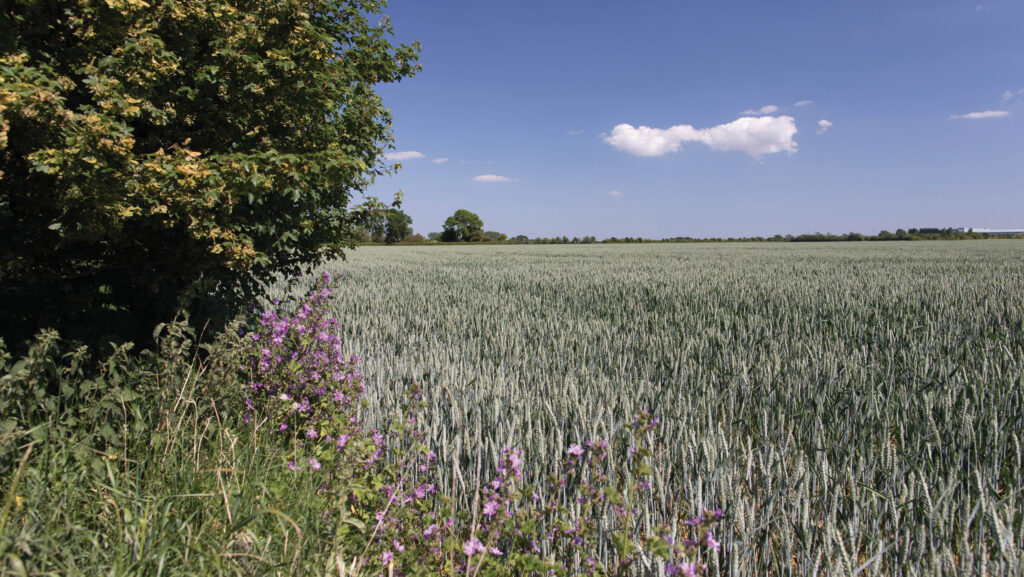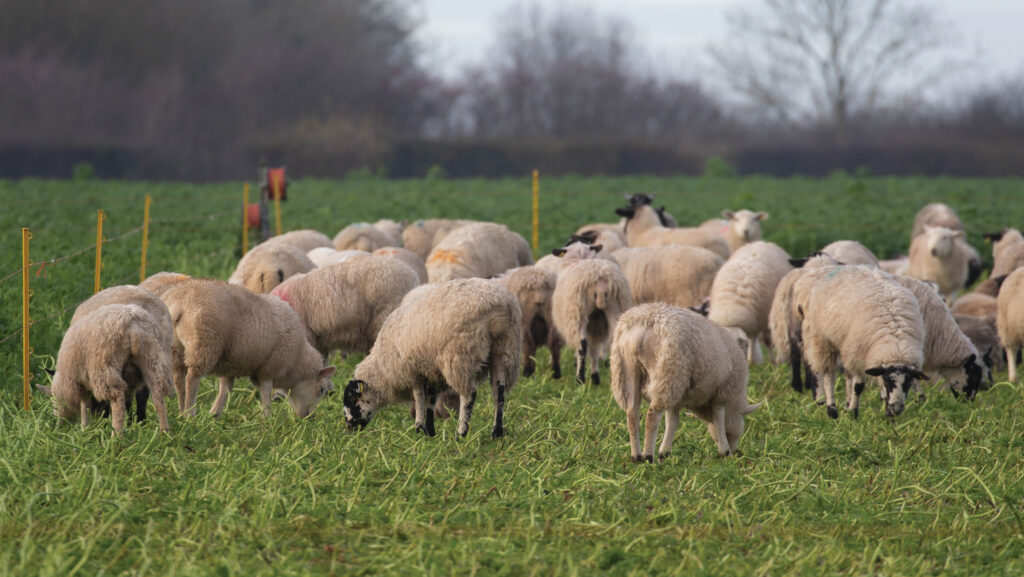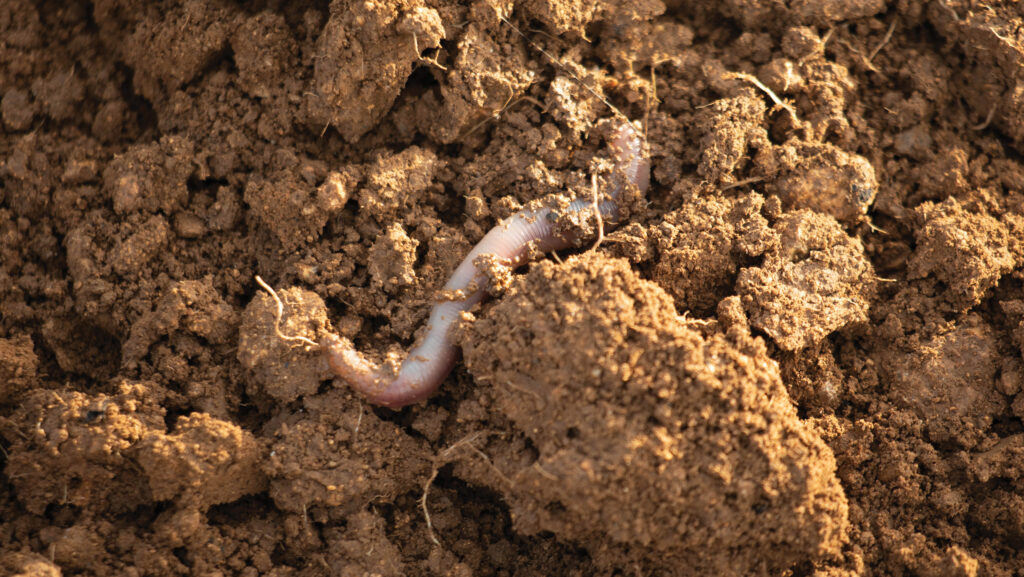Regen farming focus for dedicated conference at Cereals
 © Tim Scrivener
© Tim Scrivener Farmer-led discussions on the theme of “Robust farming in a changing climate” will be the focus of Base-UK’s dedicated conference area at this year’s Cereals event.
Against a backdrop of political, financial and climate uncertainty, the knowledge exchange event taking place across the two days (on 11-12 June) has been designed to help farmers prepare for the future by considering various options and their implications.
Four main topics will be addressed a range of industry speakers, with time for questions and discussions.
See also: Cereals 2025 host Andrew Ward reflects on farming changes
Carbon tax
“Combating the carbon tax” will be the subject of the first session, with a look at the likely effects of the forthcoming tax on imported fertiliser and cost implications for farmers.
Introduced as part of the continued push towards net zero, the tax is expected to add about £50/t of imported fertiliser or £10/ha to the cost of growing wheat.
The final figures, of course, will depend on the carbon price at the time.
As the session will reveal, the carbon border adjustment mechanism is due to be implemented from 1 January 2027, so higher on-farm fertiliser costs will have to be accounted for after then.
Speakers from farming, agronomy and research will highlight how to get the most from nitrogen fertiliser and improve the efficiency of its use.
It will also look at ways of reducing reliance on artificial nitrogen.
Agronomist Keiran Walsh of Grounded Agvice explains there are varietal differences in the way nitrogen is utilised – making the crop another part of the jigsaw.
“If we want to be less reliant on nitrogen, we need to understand the physiological differences so they can be exploited. Results from a range of wheat varieties will be explored,” he says.
Marketing regen products
When it comes to the marketing of regeneratively produced food, cutting out the middleman is just one way of getting the supply chain to work in your favour, visitors will be told in the second session.
With supermarkets shifting to reduced emissions and standardised reporting procedures, farmers can either take advantage of their programmes or look for ways to operate more independently.
Speakers from niche retailers, supply chain initiatives, local food hubs and direct-to-consumer outlets – including farm shops – will talk about the pros and cons of what they are doing, how to get started and what to consider.
Ed Brown, head of farming at Wildfarmed, will be part of the line-up.
He will be outlining how the company works with farmers in its field-to-plate system, offering them a new route to market, as well as with consumers through its “transforming lunches and landscapes” message.
Wildfarmed has recently launched two new collaborations – a regeneratively farmed oat bar with Tribe, and a partnership with Jubel beer, which is brewed with Wildfarmed regenerative barley.
Enterprise stacking

Regen ag offers enterprise stacking opportunities © Tim Scrivener
Regenerative agriculture offers plenty of opportunities to stack enterprises on the same field or piece of land, adding to its income potential.
From soil carbon sequestration to integrating livestock and growing bicrops, supported by the strategic use of agri-environment schemes, there are many ways to maximise output.
Combining multiple productive systems on the same land helps to generate revenue and allows each system to work with the others, with the output of one production cycle contributing to the inputs of another.
For Base-UK member Sebastian Richardson, who farms on heavy land in Northamptonshire, the first steps to stacking involved the use of the Sustainable Farming Incentive, carbon sequestration and livestock integration.
“We haven’t taken any land out of production, but we are increasing diversity through the rotation,” he explains.
“As a result, we will broadcast our summer fallows into the standing cereal crop in June, so we have continual cover.
“It won’t interfere with our normal arable operation, but it will improve our soil function and health. It’s about maximising income from the farm through food production, while adding to its diversity.”
Robust soils for a robust business

© Tim Scrivener
Making the decision to change your farming system can be a difficult one, so growers need to be aware of the pitfalls, as well as how to harness the easy wins.
The final session will discuss these issues, along with looking at whether farmers can afford not to change, and how business profitability can be improved where a regenerative system is working well.
As change is as much about the people as it is the processes, there will also be an emphasis on how to manage today’s challenges while planning for the future.
Working out how to proceed can be a cause of anxiety and stress, so there will be some input from Yellow Wellies on mental health too.
“Resilient soils are an essential part of a resilient business,” says agronomist Dick Neale of Hutchinsons, who will be one of the speakers on the final topic.
“Soils that can mitigate against some of the effects of climate change and produce healthy crops will contribute to a more profitable business.”
Resilience is key, he adds. “The ability of the farm system to overcome extreme weather events, financial shocks or new regulations is important.
“When we talk about resilience, it takes many forms – environmental, economic and social.”
Base-UK will be on stand 312 at Cereals. Base-UK is an independent knowledge exchange organisation run by farmers for those passionate about the sustainability of the agricultural industry and wanting to learn more about regenerative agriculture.

